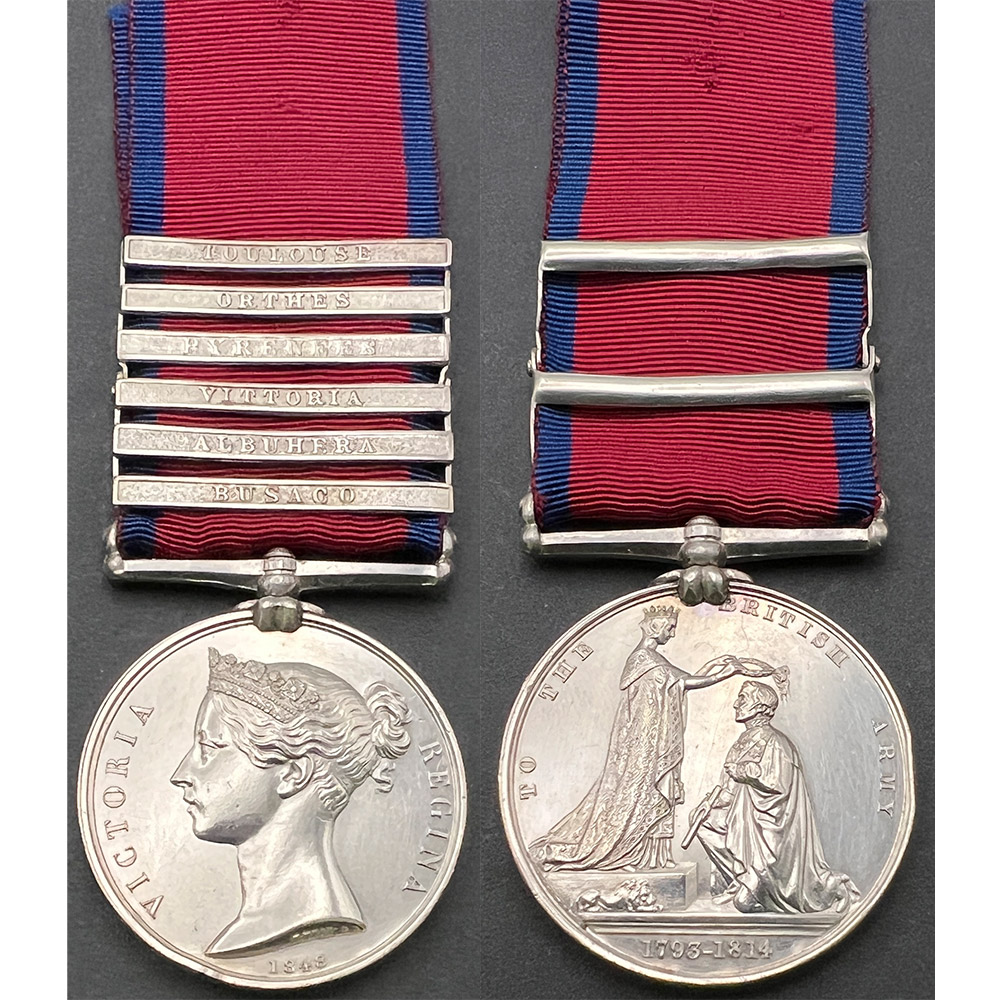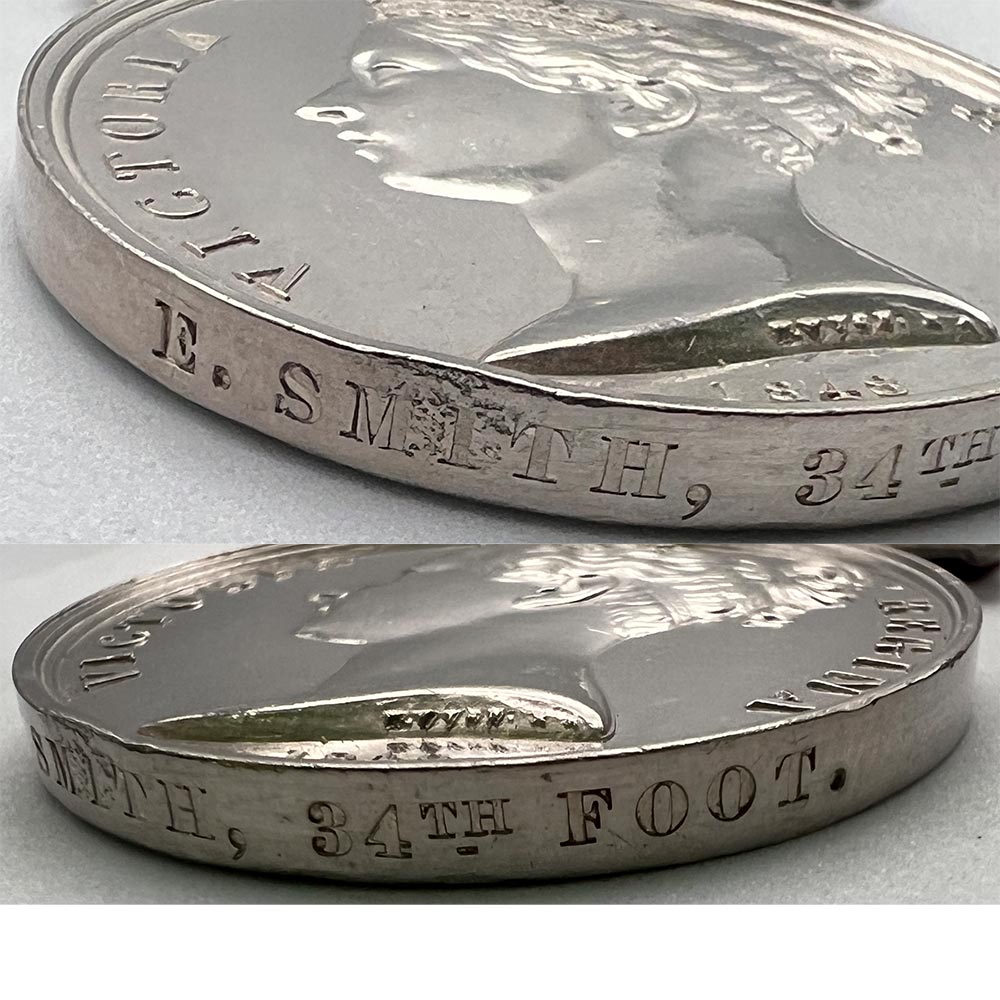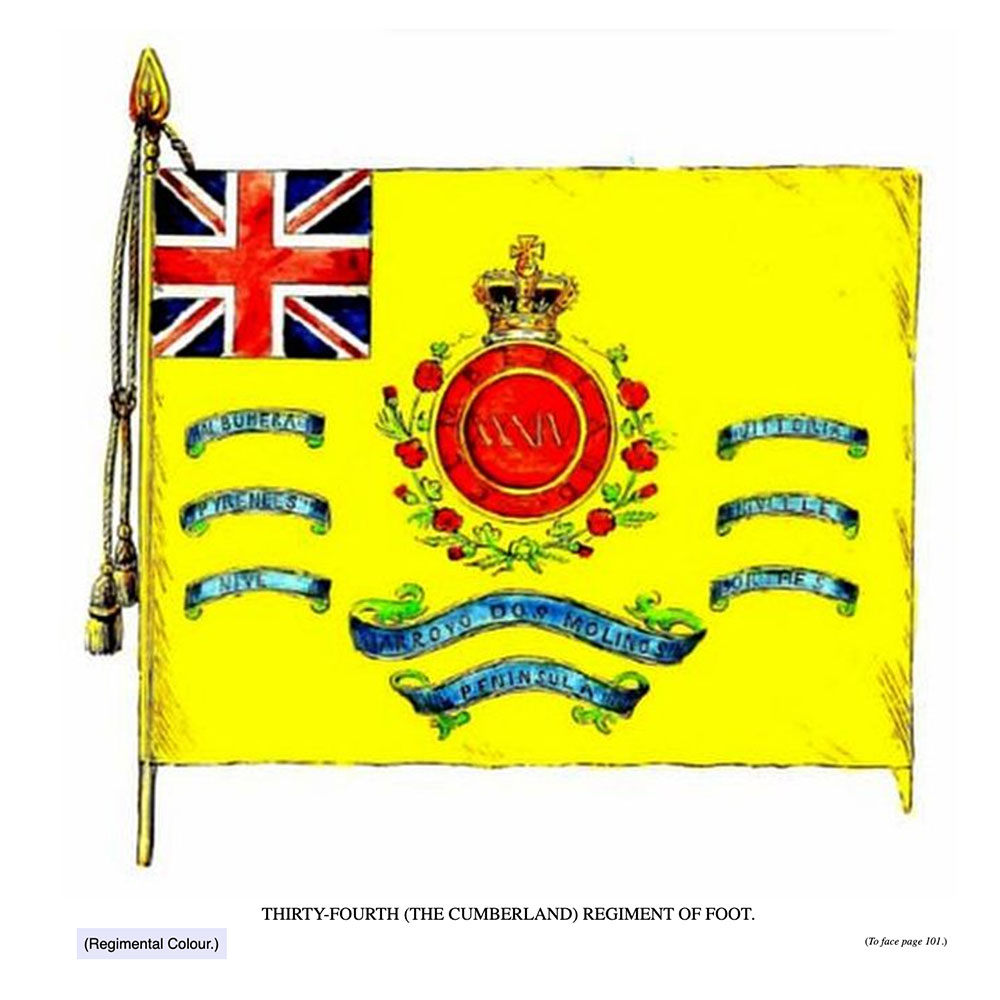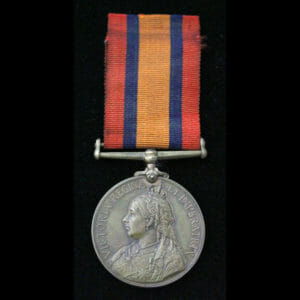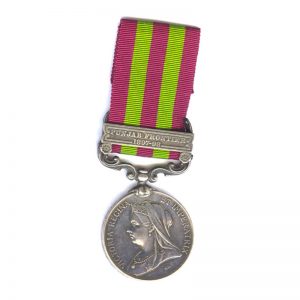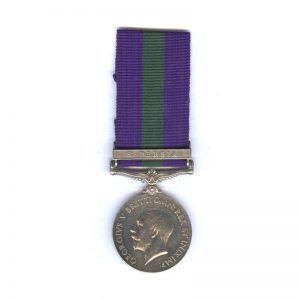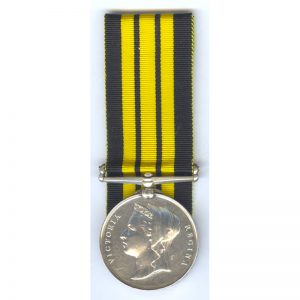Description
MGS, 6 bars, Busaco, Albuhera, Vittoria, Pyrenees, Orthes, Toulouse, Corporal Edward Smith, 2nd Battalion, 34th (Cumberland) Regiment of Foot.
Officially impressed: “E. Smith, 34th Foot”
Confirmed on the medal roll. The medal is in excellent condition with 2 edge bruises.
Only 194 survivors lived to claim the MGS from the 34th Foot by 1847.
With copy service records
Also extensive digital file of muster entries tracing his service throughout his career, about 300 high definition images.
I have attached a photograph of the Regiment’s Official “Colours” they carried with their battle honours, as you can see many of his clasps are decorated on the flag.
Notably Edward was part of the original contingent that went out to the “Peninsula” in 1810, taking part in there very first battle of the war at Busaco in 1810, followed by Albuhera 1811, also being present with his regiment during the time of the lesser known action of “Arroyo do Molinos” which did not warrant a clasp to the MGS but is one of the most famous moments of the 34th Foot, after their victory in the battle, the British captured all of the French Baggage, the 34th taking home the 34e Regiment d’Infanterie de Ligne (Amazingly by coincidence they were also the “34th Foot” of the French Army) Drums and Drum-Major’s Mace from their counterparts, these are one of the regiments most treasured trophies of war to this day.
Nowadays, the regiment is part of the “Lancasters” or Duke of the Lancaster’s Regiment (King’s Liverpools, Lancashires and Border Regiments), they still celebrate 4 special Anniversaries:
The Relief of Ladysmith, 28th February, St George’s Day, 23rd April, Battle of Waterloo, 18th June and ARROYO, on 28th October.
Following the end of the war in Europe, his 2nd Battalion was no longer needed and disbanded, having been formed back in 1804, shortly before his enlistment.
He was promoted to Corporal and joined the 1st Battalion, being posted over to the “East Indies” to join the 1st Battalion who had been there for almost 15 years already.
Whilst in India at this time, the 34th Foot took part in the Anglo-Maratha War of 1817-1819, which finally put an end to the dominating Maratha Empire in India.
Edward Smith, was born in Great Harwood, a town just North East of Blackburn in Lancashire circa 1777.
Joining the Army a little later than usual he was already 28 years old when he attested for “Unlimited Service” with the 34th Foot on 20th April 1805.
He went on to serve a full 21 years to pension being discharged on 31st May 1826 at Dublin “Being Worn Out by his length of service”.
At the time he was a bout 49 years old, his service in the regiment totalled 21 years 42 days, of which 15 years 159 days were as a Private, 2 years 55 days as a Corporal and 3 years 193 days as a Sergeant.
His conduct was said to be “Very Good”.
He intended to return back home to Blackburn.
Appears to have been discharged as Corporal, although he had spent some years as a Sergeant.
